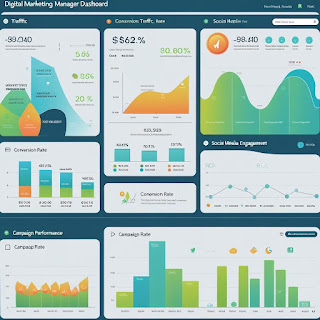CMS
1️⃣ What is Content Management?
Content Management is the process of creating, organizing, storing, editing, and delivering digital content in a structured manner. It ensures that businesses can maintain consistency, quality, and accessibility of content across multiple channels.
2️⃣ Why is Content Management Important?
-
✅ Efficiency: Reduces manual work by automating workflows.
-
✅ Consistency: Maintains brand voice and standards.
-
✅ Collaboration: Allows multiple teams to work on the same content in real-time.
-
✅ Scalability: Easily handles large volumes of content.
-
✅ User Experience: Delivers accurate and timely information to customers.
3️⃣ Key Components of Content Management:
-
Content Creation: Planning, writing, and designing engaging digital assets.
-
Content Storage: Organizing files in a structured and secure way.
-
Workflow Management: Assigning roles, approvals, and deadlines.
-
Content Optimization: Ensuring SEO-friendly and high-performing content.
-
Publishing: Distributing content across websites, apps, and social media.
-
Governance: Maintaining compliance, permissions, and version control.
4️⃣ What is a Content Management System (CMS)?
A CMS is a software that helps you manage digital content without requiring technical coding skills. Examples include WordPress, Drupal, Joomla, Adobe Experience Manager, and HubSpot CMS.
Benefits of a CMS:
✔ Easy content updates
✔ Centralized storage
✔ User access control
✔ SEO tools integration
✔ Analytics and reporting
5️⃣ Types of Content Management:
-
Web Content Management (WCM): Focused on websites.
-
Enterprise Content Management (ECM): Handles large-scale organizational data.
-
Digital Asset Management (DAM): Organizes images, videos, and creatives.
-
Component Content Management (CCM): Stores content in reusable chunks for technical documentation.
6️⃣ Best Practices for Effective Content Management:
-
✅ Define a Content Strategy: Align content with business goals.
-
✅ Use Metadata & Tags: Improve searchability.
-
✅ Maintain Version Control: Track edits and updates.
-
✅ Ensure Security: Protect sensitive data.
-
✅ Measure Performance: Use analytics to optimize content.
7️⃣ The Future of Content Management:
With AI, automation, and personalization, CMS platforms are evolving to deliver dynamic, user-specific content. Headless CMS, voice integration, and omnichannel publishing are shaping the next wave of digital experiences.
.png)


Comments
Post a Comment